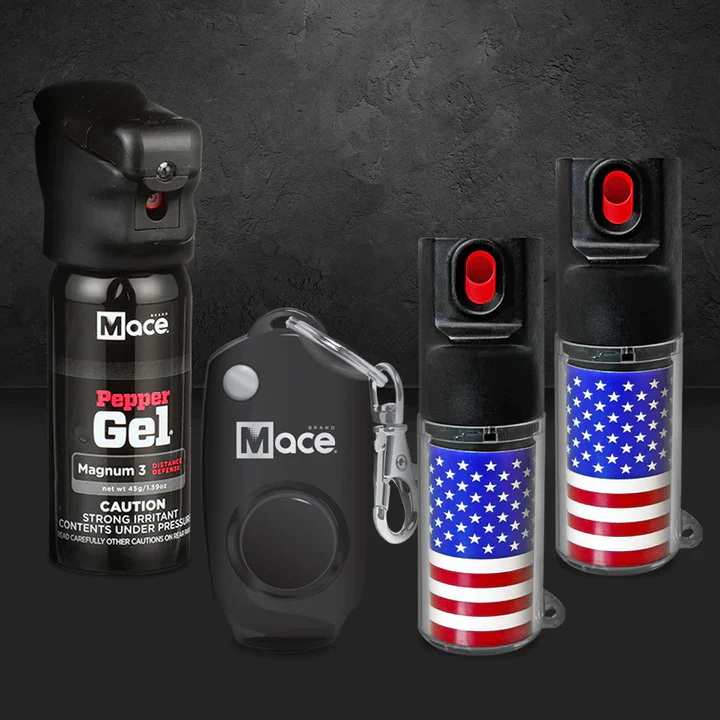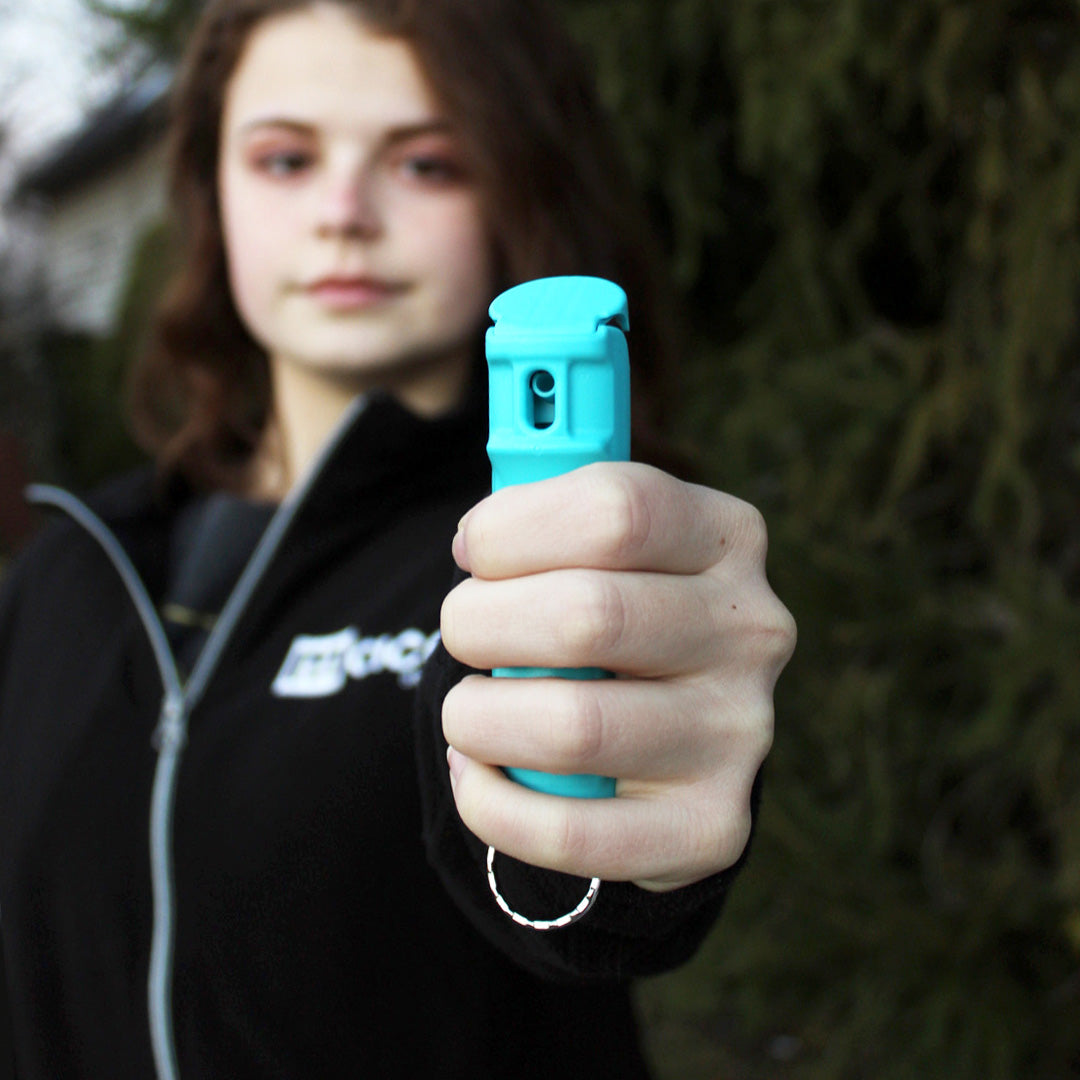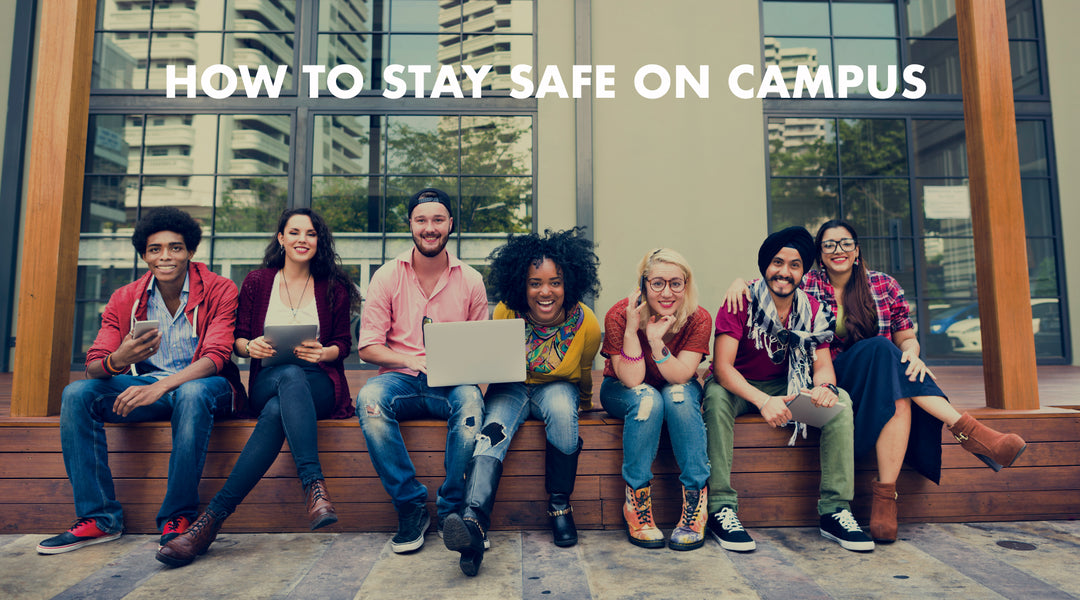Safe at School | Mace®

Practicing Situational Awareness Can Help Keep Kids Safe at School
Today’s world can be frightening for parents with school-aged children. According to ABC News, there have been 163 mass shootings in 2023. That means there have been more mass shootings than actual days in this calendar year. Unfortunately, schools are a frequent location for these highly traumatic events.
We don’t share statistics to scare people who are already frightened and frustrated. We want you to realize that you and your kids still have options for personal safety. One of those options is practicing situational awareness—and encouraging kids to do so to stay safe.
Situational awareness for prevention
According to the most recent United States Secret Service (USSS) National Threat Assessment (NTAC) published in 2019, 67 active shooter events between 2006-2019 were prevented because someone saw something and reported it to an authority. If parents, students, teachers, and administrators practice situational awareness, it may help prevent another tragedy from happening.
The best way to avoid danger is prevention. Sometimes making that happen means heightening your awareness and purposefully tuning in to what’s happening—and what seems out of place—in your daily life. That’s not to say situational awareness can always stop traumatic events from occurring. But, it can’t hurt to be more intentional when facing threats like mass shootings.
How to practice situational awareness
Situational awareness is quite literally being aware of what’s happening in your environment—at home, at work, and when you’re out and about. It’s being observant of how you and others are behaving and paying attention when something seems off. If something doesn’t feel right, a situationally aware person won’t ignore their instincts. They do something about it—leave, go another direction, tell someone in authority, or take other protective measures.
Here’s an example: Let’s say a child, who normally seems happy and healthy, suddenly has difficulty sleeping. He walks around grumpy, seems withdrawn, and doesn’t want to play. All of those elements suggest something is going on with that child. A situationally aware parent will observe this irregular behavior, investigate what’s happening, and do something about it. They won’t ignore important clues—or assume everything will be okay, dismissing something as a phase or behavior that will pass with time.
Learn about situation awareness from a law enforcement professional.
Talking to kids about situational awareness
Kids already have to participate in active shooter drills at school to help prepare for the worst. No parent wants to add to their child’s burden, but talking about situational awareness can help prevent trauma. Plus, teaching your child how to be more aware can boost their confidence and increase personal safety. The key is to make it fun and interesting.
Having this discussion can be as simple as saying something like this: “We want to teach you how to be more aware so you can stay safe. Next time we go to dinner, let’s play a little game.” Then, the next time you go to a restaurant, ask your child to find or observe various things in the environment. Ask them how many exits there are, how old someone is, or to find a certain color. This game is teaching your child how to be observant and practice situational awareness.
Explore more ways to teach your kids about situational awareness.
Being prepared and educated is being empowered
We want you to help your child feel confident in any situation. That’s why we offer a range of products, how-to videos, and resources dedicated to personal safety. We know that situational awareness takes practice, but it’s worth it. Make it fun for your kiddos, and stay safe.









Leave a comment